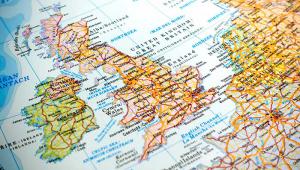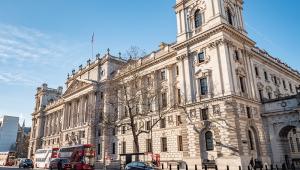Last month’s rail white paper revealed rather more than the government’s medium-term plans for part of the nation’s transport system.
Its approach to the development and funding of the railways tells us much about what national politicians believe the electorate really wants from a major public service.
It also, by implication, gives significant clues about the longer-term development of all other state provision.
Transport Secretary Ruth Kelly’s overall message was clear. There will be no order-of-magnitude change to the UK’s railways. Britain will not have a French-style TGV to carry people from, say, Glasgow to London in three hours. High-speed trains will be restricted to Eurostar services from St Pancras to the continent. For the East Coast and West Coast main lines, we will continue with medium-speed services that stop slightly too often.
There are to be improvements to heavily used services and stations. Birmingham New Street and Reading will enjoy major upgrades. Commuter trains around the capital will gain additional capacity, using techniques that range from double-deck carriages to the removal of seats. Platforms might also be extended. But, taken together, the improvements to commuter services in London and other cities will amount to squeezing extra people into slightly more space. On many lines, crowding will almost certainly get worse.
The government also made it clear that any improvements to the railway will be funded from increased fares. Rising passenger numbers will provide some additional revenue but the clear implication of the white paper is that fares will have to continue to rise well ahead of inflation. Government operating subsidies for the railway are to be reduced in future years.
Only a minority of the population use trains, so those who do are to be forced to pay for investments and any improvements to services. Official rhetoric about ‘sustainability’ and reduced pollution matters less than holding down the taxpayer’s contribution to this particular mode of travel. It seems likely that in future, as in recent years, the cost of train travel will increase faster than that of motoring.
The reason for this oddity is simple: the majority of the electorate are motorists, and they are not to be angered by inflation-busting increases in their costs. Rail users, by contrast, are too weak to bully the government.
No wonder the rail system looks cramped and expensive. British politicians judge that people in this country would rather have lower taxes than a European-style railway with efficient services and low fares. Politicians are not stupid: at some level the railway that is provided must be the one we want. The French, after all, pay significantly higher taxes than the British.
Monsieur Sarkozy can afford to spend more not only on trains, but also on hospitals and schools.
As Britain’s public expenditure levels off as a proportion of gross domestic product from 2007/08, Chancellor Alistair Darling is putting the final touches to the long-awaited Comprehensive Spending Review. It is likely that public expenditure will now rise only in line with growth in the economy. As health and schools bag the biggest share of any growth, there will be real reductions for some services.
But, in the longer term, even the NHS and education cannot expect to get an ever-larger share of the national economy. The rail white paper suggests what will eventually begin to happen even in the most favoured of services: charges will be used to fund new and/or optional services. This has already been adopted in higher education with the introduction of fees.
Railway provision and expansion will in future require users to pay rather more in real terms than they have in the past towards the cost of new or improved services. It is easy to imagine the cold logic of Kelly’s approach being adopted in other areas of provision. Oddly, museums and galleries, having been encouraged by the government to abolish admission charges, are likely to be one of the few discretionary spheres of public spending that will not find their charges squeezed upwards.
But buses, waste collection, non-compulsory education and ‘non-essential’ health provision will surely face higher charges in the years ahead.
There is no escape if Britain wants to have effective, European-style, infrastructure and other state provision but is not prepared to pay higher taxes to pay for it.
The rail white paper makes it clear that Britain can have a railway that is reasonably similar to those in France, Germany and Italy, but it will increasingly have to be paid for by users.
The paper is a leading indicator of things to come in other services.











